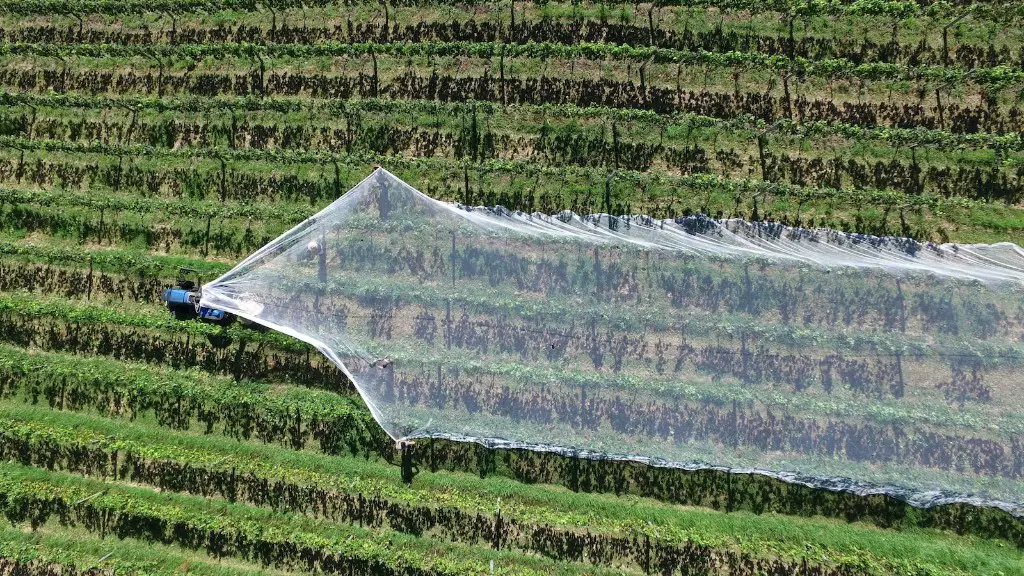Agriculture in stock exchange refers to the buying and selling of equity securities related to the agricultural industry. Investment in agricultural stocks can be done through brokers, financial advisors, or through self-directed investment. Investing in agricultural stocks provides investors with access to a diverse range of agricultural products and services. Investors can profit from companies involved in the production, processing, and sale of agricultural products. By understanding the fundamentals of agricultural stocks and the nuances related to agricultural investment, investors can make informed decisions when trading these assets.
Effects of Climate Change on Agriculture in Stock Exchange
Climate change has an undeniable effect on agriculture and the agricultural sector’s related stocks. Rising temperatures and erratic weather patterns can lead to changes in crop yields and prices, both of which could have a significant effect on agricultural stocks. Drought can cause some agricultural companies’ profitability to suffer, while floods and typhoons could affect the distribution and/or shipping of products. Additionally, climate changes may cause soil degradation, loss of arable land, saltwater intrusion, and water shortages, which could all have a detrimental effect on agricultural stocks.
Investors should consider how climate change may affect a business’ operations when investing in agricultural stocks. Monitoring weather patterns, analyzing important agricultural data and pricing information, and keeping up with the most current news and regulations related to the agricultural sector can all help investors identify how climate change can affect a company’s stock. Additionally, investors can research companies that are positioned to benefit from investments in climate-resilient agricultural practices, agricultural technologies and other measures to prepare for and mitigate the effects of the changing climate.
Factors Affecting Agriculture in Stock Exchange
Investors who are considering investing in agricultural stocks should understand the many factors that influence their prices. Supply and demand as well as economic cycles are primary factors that drive the agriculture sector’s stock prices. Changes in consumer preferences, governmental policies, commodity prices, currency movements, and environmental regulations can also have an impact on agricultural stocks.
Fluctuations in crop prices due to short-term supply disruptions or temporary spikes in demand can affect the price of agricultural stocks. Prolonged, supply-side issues that come from regional drought or large-scale floods can also cause stock prices to move significantly. Factors such as crop protection regulations, subsidy policies, and technical advances can also lead to changes in the agriculture sector’s stock prices.
Investors should analyze the current and future trends of each agricultural sector to gain insight into its performance and determine how it will affect stock prices. Analyzing economic and geopolitical data can also provide investors with a more holistic view of the sector and its stocks.
Applications of Technology in Agriculture in Stock Exchange
Investors should consider how advancements in technology can have a positive effect on agricultural stocks. Companies that are at the forefront of technological advances in the agricultural sector can often benefit from more efficient production practices, cost savings, and higher crop yields. Investments in new technologies such as robotic farms and precision agriculture can benefit agricultural companies. Expansions in biotechnology, food safety, and energy production are other areas of technology that can potentially produce strong returns for agricultural companies and their investors.
Investors should research companies that are utilizing technological advances in a strategic and profitable manner for their business. Companies that employ new technologies to optimize productivity and reduce costs are likely to perform better in the long run. Additionally, investors should consider how technological advances may lead to changes in consumer preferences which could affect the selling prices of agricultural products and lead to changes in agricultural stock prices.
Socio-Political Issues on Agriculture in Stock Exchange
Investors should be aware of the socio-political changes and global trends that may have a substantial impact on the agricultural industry and its stock prices. International trade and export regulations, changes in global monetary policies, shifts in consumer attitudes and preferences, and changes in labor laws could have a dramatic effect on the agricultural sector and its stocks. Significant changes in weather patterns and environmental regulations can adversely affect agriculture stocks.
The emergence of plant-based diets and environmental concerns can have a significant effect on certain agricultural products. Additionally, changes in government subsidies and crop insurance programs can have a notable impact on the agricultural sector’s stock prices. Investors must be vigilant in their research of stocks to ensure they are making informed decisions when investing in agricultural companies.
Demand and Opportunity for Promotion of Agriculture Products Across Borders
The emergence of global interconnectedness has made it easier for companies involved in the agricultural industry to distribute and sell their products across national borders. Governments increasingly recognize the importance of removing protective tariffs and quotas to facilitate agricultural trade. The European Union, for example, has implemented a number of policies to encourage the free movement of agricultural products within its member states.
Companies that are able to take advantage of these opportunities and tap into new global markets can reap significant rewards. Investors should consider companies that are positioned to benefit from these opportunities and capitalize on them. Additionally, companies that are involved in the business of promotion and distribution of agricultural products across international borders may benefit from these new opportunities.
Objectives and Strategies of Government Intervention in Agriculture Sector
Governments, in many countries, have adopted policies to support the agricultural sector. These policies provide incentives, subsidies, and incentives to promote production and encourage small farmers. Government policies have also focused on promoting agricultural technologies, research and development, price stabilization, and potential investments in agricultural stocks.
Government intervention in the agricultural sector can provide investors with opportunities to make substantial returns. Subsidy and tax policies, for instance, can lead to increased production and a rise in asset prices. Additionally, the increased demand for modern agricultural technologies presents an opportunity to invest in companies that produce these technologies.
Speculative Investment in Agriculture Stocks
Agricultural stocks have the potential to provide investors with significant returns. Investing in companies involved in the agricultural sector can give investors access to stocks of companies that have a wide variety of products and services. Investors, however, should also understand the risks associated with investing in agricultural stocks. As with any investment, investors should be aware of the potential volatility and should research a stock before investing.
In addition to researching a company’s fundamentals, investors should consider the macroeconomic and geopolitical factors that may affect the sector’s stock prices. Additionally, investors should be cognizant of the potential for speculative investing in agricultural stocks. While speculative investing can potentially generate short-term gains, it can also lead to significant losses.
Evaluation and Analysis of Agriculture Sector Performance
Investors should evaluate and analyze the performance of the agricultural sector and its stocks before investing. Investors should research the current and future trends of the sector as well as the various companies involved in it. By analyzing the sector’s data and examining the companies’ performances, investors can gain a more complete understanding of the sector and the stocks associated with it.
Investors should understand the many risks associated with the agricultural sector in order to make informed decisions when investing in these stocks. The potential for political and economic uncertainty, climate change, and technological advancements should all be considered. Additionally, investors should consider how changes in trade policies may affect the sector and its stocks. Understanding the potential risks and rewards associated with investing in agricultural stocks can help investors make informed decisions regarding their investments.




